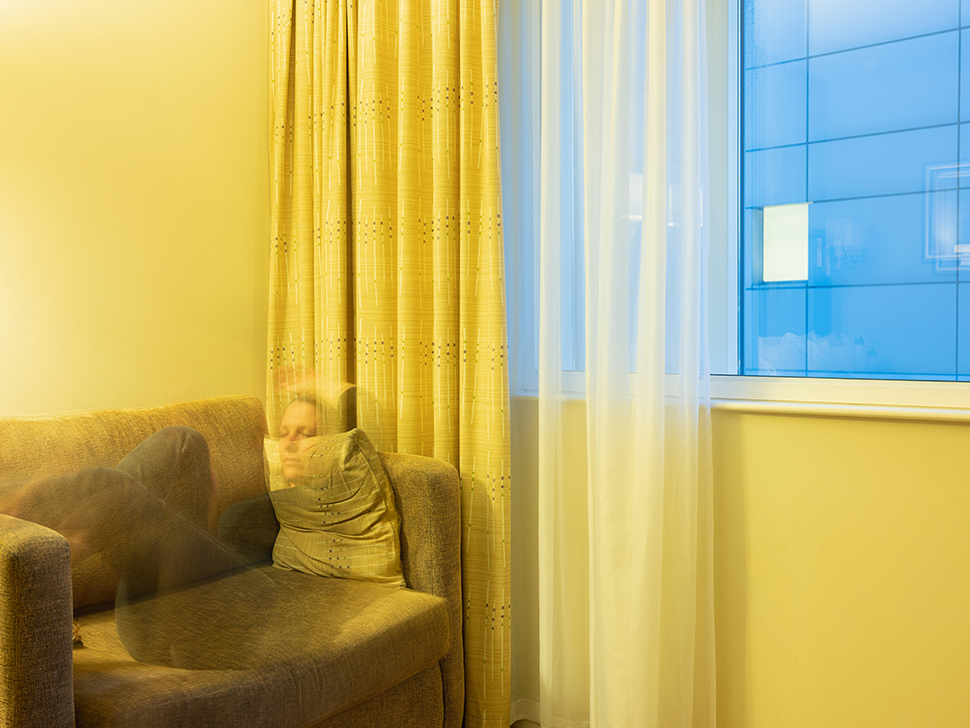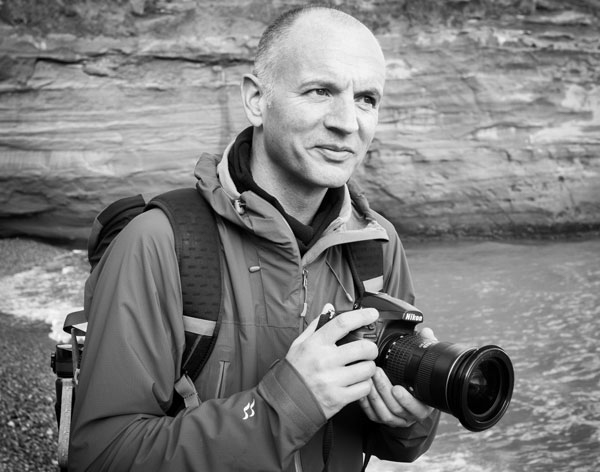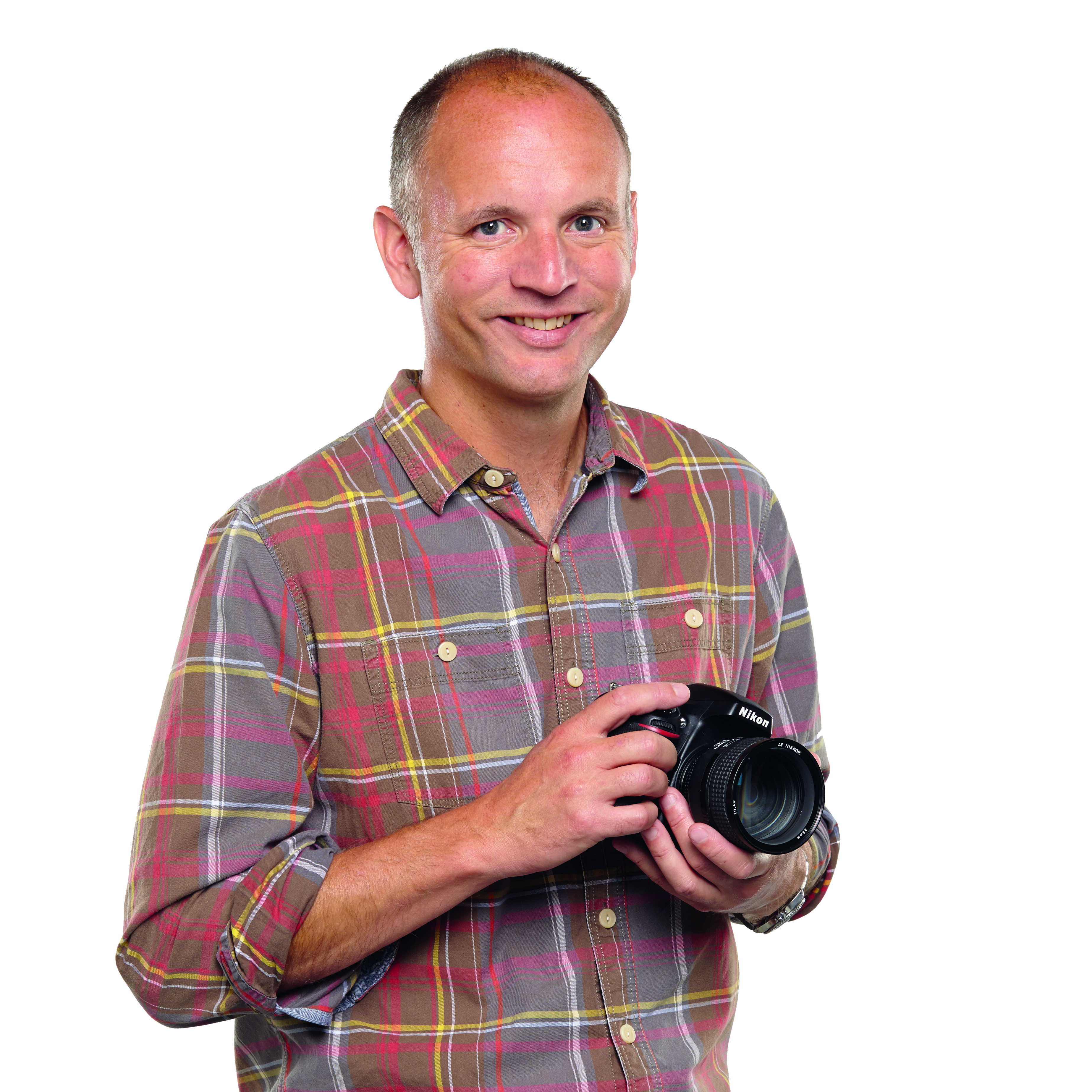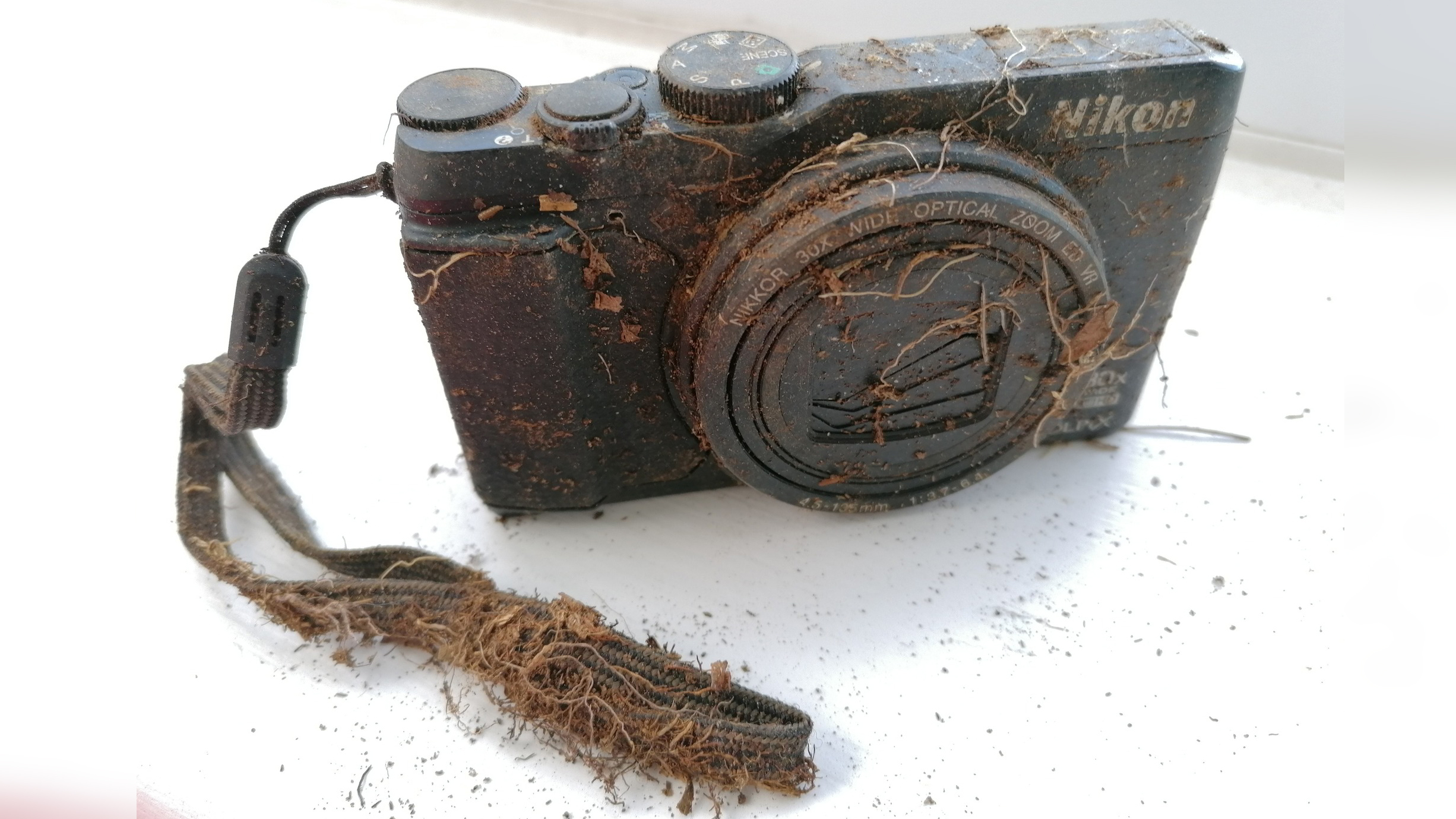“It’s at moments like this that boredom can set in. And boredom is lovely”. Experimenting in the bedroom conjures up a ghostly photo
The Art of Seeing #66: Stuck in a hotel room, Benedict Brain explores the creative potential of having nothing to do


Benedict Brain is a UK-based photographer, journalist and artist. He is an Associate of the Royal Photographic Society and sits on the society’s Distinctions Advisory Panel. He is also a past editor of Digital Camera Magazine, and the author of You Will be Able to Take Great Photos by The End of This Book.
A life of international travel has an allure that I cannot deny I find attractive. However, as glamorous as it might seem, there are plenty of dull moments too. A sterile airport hotel room is one of the least exciting parts of a trip. Or is it? The homogenized decor, indifferent staff and bland food are all part of the experience. It’s fair to say they’re not generally considered photogenic locations.
But I am drawn to our world’s banal, less photogenic aspects. Plus, there are often weird moments of downtime in these places, with no agenda other than waiting for a plane. It’s at moments like this that boredom can set in. And boredom is lovely. I’d argue that boredom is a crucial conduit to creativity. I mourn the loss of boredom that smartphones and social media have induced. Precious moments of downtime are now filled with mindless scrolling of gratuitous rubbish. I, too, am guilty of this.
However, sometime in May last year, I found myself in a dull, uninspiring hotel room on the periphery of London Heathrow. Soon enough, I was bored. And not long after that, I reached for my camera. Bingo! My aimlessly wandering mind had been seduced by the starkness of the Edward Hopper-esque interior, the blue hues of twilight, and the warm glowing yellow vibes from the bedside lamps. After a couple of handheld high-ISO shots, I thought there was potential to do it ‘properly’, so I unpacked my tripod, lowered my ISO and went for a slowish exposure to get the shot.
My partner and traveling companion was snoozing on the sofa as I set up and made some practice shots. She woke in the middle of a test shot, stood up and left the frame. I was initially frustrated, but soon realized that her act had created an excellent ghost-like impression. It felt a fitting way to portray the transient nature of these rooms, with their constant ebb and flow of anonymous traveling humans.
• Other articles in the Art of Seeing series
Read more:
• The 50 best photographers ever
• 100 best photography quotes from famous photographers
• The best coffee-table books on photography
Get the Digital Camera World Newsletter
The best camera deals, reviews, product advice, and unmissable photography news, direct to your inbox!
Benedict Brain is a UK based photographer, journalist and artist. He graduated with a degree in photography from the Derby School of Art in 1991 (now University of Derby), where he was tutored and inspired by photographers John Blakemore and Olivier Richon, amongst others. He is an Associate of the Royal Photographic Society and also sits on the society’s Distinctions Advisory Panel.
Until July 2018 Benedict was editor of Britain’s best-selling consumer photography magazine, Digital Camera Magazine. As a journalist he met and interviewed some of the world’s greatest photographers and produced articles on a wide range of photography related topics, presented technique videos, wrote in-depth features, curated and edited best-in-class content for a range of titles including; Amateur Photographer, PhotoPlus, N-Photo, Professional Photography and Practical Photoshop. He currently writes a regular column, The Art of Seeing, for Digital Camera magazine.

